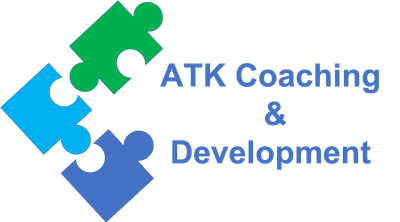The "Small" Blog
Starting to Build a Coaching Culture
Having worked in the corporate world for nearly
20 years I know all about the constant drive to deliver more results with less resources. I don’t think any corporate company is immune to this and I am sure there are employees like me every year saying “How we are going to achieve that?.
Again”. Yet we do. We all seem to pull rabbits out of hats every year. And again in 2020 we will be asked, again, to deliver more, with less. There is a tipping point though, when the traditional methods for achieving this just don’t work anymore. So organisations across the world look for new methods.
Coaching is one of those methods. It is not new, it is not revolutionary but it is gradually becoming part of the "everyday" normal business discussions.
The problem is though that coaching is actually counter-intuitive. You have a line manager that is spending every moment trying to fix issues, deal with escalations, keep an eye on the
behaviours, performance and motivation of their team, and in many cases also being a ‘working-manager’ and completing the tasks they were doing before taking on the current line-manager role. So while all of this is going on, along comes HR and says “have you thought about adding an extra task to your workload? I recommend you spend at least an hour per month with every team member. Sitting them down in a room and just talking to them” I have of course paraphrased the HR conversation
but it certainly rings true in organisations I and colleagues have worked in. The reason coaching is counter-productive is that it is more often a mid-to-long term payback. Last year I finished a 4 year cycle of workshops, exams and certification with Co-Active Coaching so I know the mid to long term benefits. Improved employee engagement. Increased empowerment. Actually freeing up of the managers time. But these only happen in the mid-to-long term.
It takes time. And patience. And more time. And perseverance.
In a corporate world where we are increasingly only looking at the short-term, when line managers are fighting to find a small percentage of time free, and then when they
do it is swallowed up by a request for an ad-hoc report, well how do we expect the line-managers to find the desire, let alone the time, to seriously commit to coaching? Now I know some of you reading this will say “but hang on is coaching your own team members appropriate?” Well that is great question and for another blog. In this instance let’s say we have two line-managers, who have two equal size teams. Lets say they agree to coach each others teams. This way they are not coaching their own team members. It still doesn’t, however, resolve the issue of how can managers afford to coach when they have so much else going? One way of looking at this is turn it around and ask “Can your line-managers afford to NOT coach?” The statistics all show that companies that have a strong coaching culture are more likely to have stronger performing, more engaged employees.
So can this be done? In this short-term "more with less" economy, how do we start down this path? It has to come from the top.
Executives have to give the permission. And I don’t just mean the board signing off on the coaching programme and telling HR “go and make it happen”. Action not words is what is required. Are your senior managers receiving coaching? Are your senior managers extolling the virtues of coaching? Are your senior managers sponsoring coaching in the organisation? If the answer to any of these questions is no then we need to talk.
Expecting a line-manager to commit to an activity that is going to hamper their ability to deliver on short-term goals is just not going to happen UNLESS they see it happening above
AND they are empowered to let it happen from above. In times of uncertainty, in those times when we are not sure of which direction to choose, we all look for leadership. And commonly we look at those above us for guidance. If you are in a leadership position (at whatever level in an organisation) whether you like it or not, people are watching you. Right now. They are looking at you to set them an example. We can build the most amazing programmes but if there is not the commitment from the top, sadly all that effort and creativity is being built on very shaky foundations.
So while coaching to a line-manager may seem counter-intuitive, to ensure you start building a coaching culture correctly, get your foundations from the top. Yes, that’s counter-intuitive as well isn’t it!
What's in a name?
I am not a "small" person. Only by name. If
you saw me "small" would probably not be one of the words you would use to describe me. It is the same for my family. Brother, Father, Grandfather. It is only the surname but not my size, my personality, my presence, or my voice. I am not a "small" person. So wherever my family name came from, well somebody obviously had a sense of humour. A sense of humour that I am proud to have to. Now it isn't easy.
Not when your surname is Small. The best example is travelling. I have travelled a lot whether on holiday or for business. Planes, trains and automobiles as the quote goes. As the other quote goes, if I had a $
for every time somebody, who initially looks stern and serious (for example those very nice people at passport control), reads me surname and then looks up from behind their desk, smiles and says "..but you are not so small". There are thousands of variations. "But they should have called you Mr Big". I could go on. I have a lot of experience in this. I could get angry. I could sarcastically say yeah I have never heard that before. I could respond by looking at their name badge and applying the same logic if they are called Mrs Green, Mr Baker or Herr Schneider. Yes I could do all of those things but I don't. And here is why .....
I am not defined by a title or name.
Being defined by a name is all too common. "I am only an order entry specialist" or "I am not the CEO, I am only the finance manager". We too often define others, and ourselves by names and titles. Why? It is restrictive. It is uncreative. There are enough rules and regulations in modern day life already, why should allow a name to also restrict us. So don't be defined by your title, job role or even your name.
Be who you can be, not what a name limits you to be.
Oh and next time you come across a Mr Small who isn't so small, use your unlimited creativity to come up with a new way to make humour out of his name. You never know he may never have heard anyone say that before!
Completing a jigsaw ... and then finding actually you are never finished.
Like just about everybody else right now in
these unprecedented times I have a lot of time to think. Maybe too much time to think! I was thinking about my company logo and what it actually represents. Why did I choose that as opposed to potentially millions of other logos? My company logo is that of a jigsaw, or puzzle. I chose it because I like to think that is what from a business perspective my role is. Helping people put their own jigsaw together.
I am going to take this metaphor further, because this is exactly what pure coaching should be. When working with teams and individuals, I truly believe that they actually have all of the pieces around them. Coaching should be about helping them to put it together. Sometimes as a coach you have to highlight that a piece they are missing is directly right in front of them but for some reason they cannot see it, being blocked by something else. Other times it is about understanding that what they actually is further afield (like under the sofa if we continue this metaphor). The people have all the pieces available they just need guidance, help, assistance in putting it together.
The difference between a normal 1,000 piece jigsaw and life is that our careers, our personal life, our relationships are multiple 1,000 piece jigsaws all stacked on top of each. Each one has its own complexities. Many are interlinked, some aren't. So a jigsaw piece that completed one puzzle isn't necessarily the correct piece that will complete another. Then when you have added that 1,000 piece, you then realise that in the moment you stood back to admire it, something changed, something moved to create a new piece on another jigsaw that needed to be added. It actually wasn't finished. It is actually never finished. It can seem frustrating.
From my coaching terminology this is called Balance. Balance is understanding that there is constant movement and every time we feel complete and steady, we have to understand and accept
that something somewhere is already changing. We have to constantly re-balance ourselves, our career, our relationships. One of my passions for coaching is driven by the power of positive change that it can have when you can understand and accept that. The knowledge that there is always another jigsaw to complete. For me personally it might be with the new client. It might be in a relationship with a friend. It is often with myself. It is never
finished. It is constantly an act of balance. So as I stand back and admire my logo I also realise that at some point (along with my career jigsaw, my relationships jigsaw etc) I will need to add new pieces to it again, that there will eventually be new spaces to be filled in my jigsaw. Working with clients to accept and understand this is transformative.
So when you are feeling that everything around you is moving and we want it all to just stop, remember that balance is actually about swaying and moving with everything else around us. Add that new piece to your jigsaw, re-find your balance.
And if you are struggling to add that piece to your jigsaw, let me know. I can help with that!
Working in Corona Times or "letting the genie out of the bottle".
I have a background with companies that have
been technology or telecommunications driven. The concept of "working from home" has for me been normal for over 20 years. Laptops, VPNs, SecurID Tokens, Audio/Video Conferencing. Nothing new. After chatting to a good friend who used to work in the same company, we discussed that this isn't the case for everyone. Some organisations wouldn't allow their employees to work from home due to the nature of their work (onsite technicians or call centres for example). Other companies have line managers who don't like the concept of working from home. My friend then used the expression "have we let the genie out of the bottle?". This comment intrigued me and my curiosity kicked in, which meant a much longer conversation! In summary ... the genie is the myth that we can be more effective and productive if we work in large offices together.
We have been living in a world where although technology enables us to work remotely, often it is the behavioural side that has stopped us from doing this more. In these Corona times for the past two months (here in Germany at least) we haven't had much of a choice but to allow working from home to
happen. It was initially encouraged and then later required. So can we go back to
how the world worked before? Or do we even want to?
In my experience if a leader in a company believes that people are more productive being sat at their desk in an office, then the likelihood is that is the culture of not working from home will permeate around the company. If a line manager thinks that a specific role cannot be effectively done from home, then exploring the possibility of what is actually possible from home just won't happen. It isn't technology, it is preferences and beliefs that have limited this approach. As per the quote I read in Deutsche Welle
from Johannes Schuler of the Fraunhofer Institute for Systems
"Some companies believe their workers don't really work from home in the same way they would work in the offices and in that way try to prevent any work-from-home approaches..."
Now though, due to Covid-19, we are being forced to accept that we need to do as much as can remotely and we need to adapt. As companies explore ways to continue their business critical functions via VPN's, Zoom, Google Meet etc, how can we then say in 3 months (yes I am probably be optimistic in my timelines) that we all need to head back to the office? What will be the business justification for doing this after we have all worked in an environment where so much of the workforce can operate remotely? On. different levels there are different challenges and opportunities:
For Employees
- it will be difficult to hear that the flexibility that hey have now in working from home is being reduced, and in some cases removed
- for others being able to re-socialise again is an important step back towards normality (whatever that looks like)
- not having to work from an improvised desk and that will be a relief
For Line Managers
- having to adapt and learn new skills on how to manage remote teams
- learning to trust more in their team members can and will get the job done remotely (micro-managing must be very challenging right now!).
For Organisations
- why should they continue to rent or own huge and costly office space? The potential reduction in operating expenses are significant and different location strategies will be discussed https://www.bbc.com/news/business-52467965
- Investment in remote working technologies is and will continue to rise
As we adapt to these challenging times, what is clear is that for employees, line managers and organisations things have changed. The genie is out of the bottle and I don't think we can put it back.




